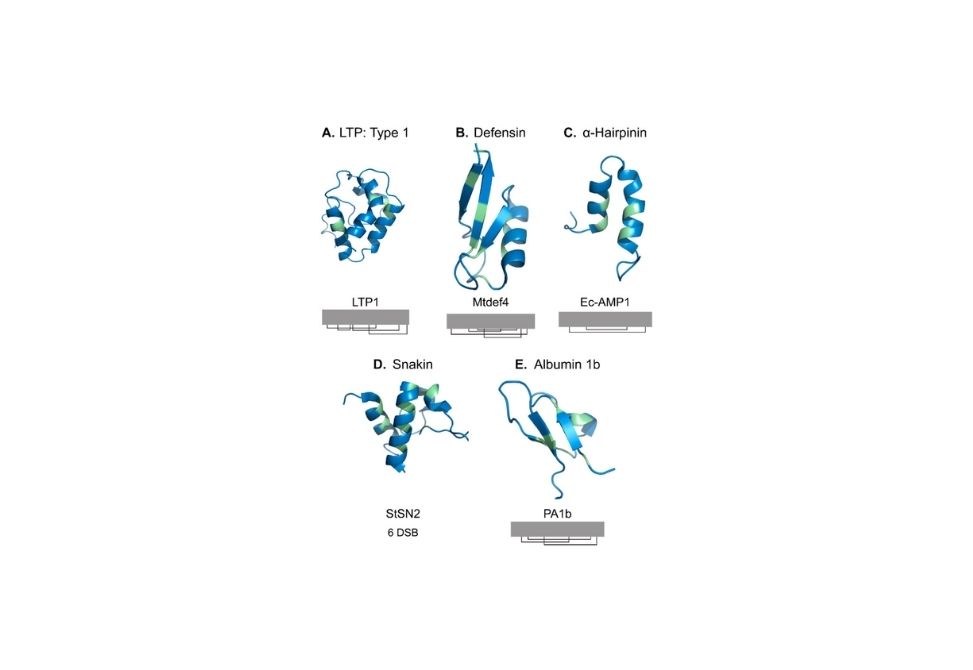Mass Spectrometric Identification of Antimicrobial Peptides from Medicinal Seeds
Abstract
Traditional medicinal plants contain a variety of bioactive natural products including cysteine-rich (Cys-rich) antimicrobial peptides (AMPs). Cys-rich AMPs are often crosslinked by multiple disulfide bonds which increase their resistance to chemical and enzymatic degradation. However, this class of molecules is relatively underexplored. Herein, in silico analysis predicted 80-100 Cys-rich AMPs per species from three edible traditional medicinal plants: Linum usitatissimum (flax), Trifolium pratense (red clover), and Sesamum indicum (sesame). Bottom-up proteomic analysis of seed peptide extracts revealed direct evidence for the translation of 3-10 Cys-rich AMPs per species, including lipid transfer proteins, defensins, α-hairpinins, and snakins. Negative activity revealed by antibacterial screening highlights the importance of employing a multi-pronged approach for AMP discovery. Further, this study demonstrates that flax, red clover, and sesame are promising sources for further AMP discovery and characterization.
Citation
Moyer TB, Brechbill AM, Hicks LM. Mass Spectrometric Identification of Antimicrobial Peptides from Medicinal Seeds. Molecules. 2021 Dec 1;26(23):7304. doi: 10.3390/molecules26237304. PMID: 34885884; PMCID: PMC8659199.


